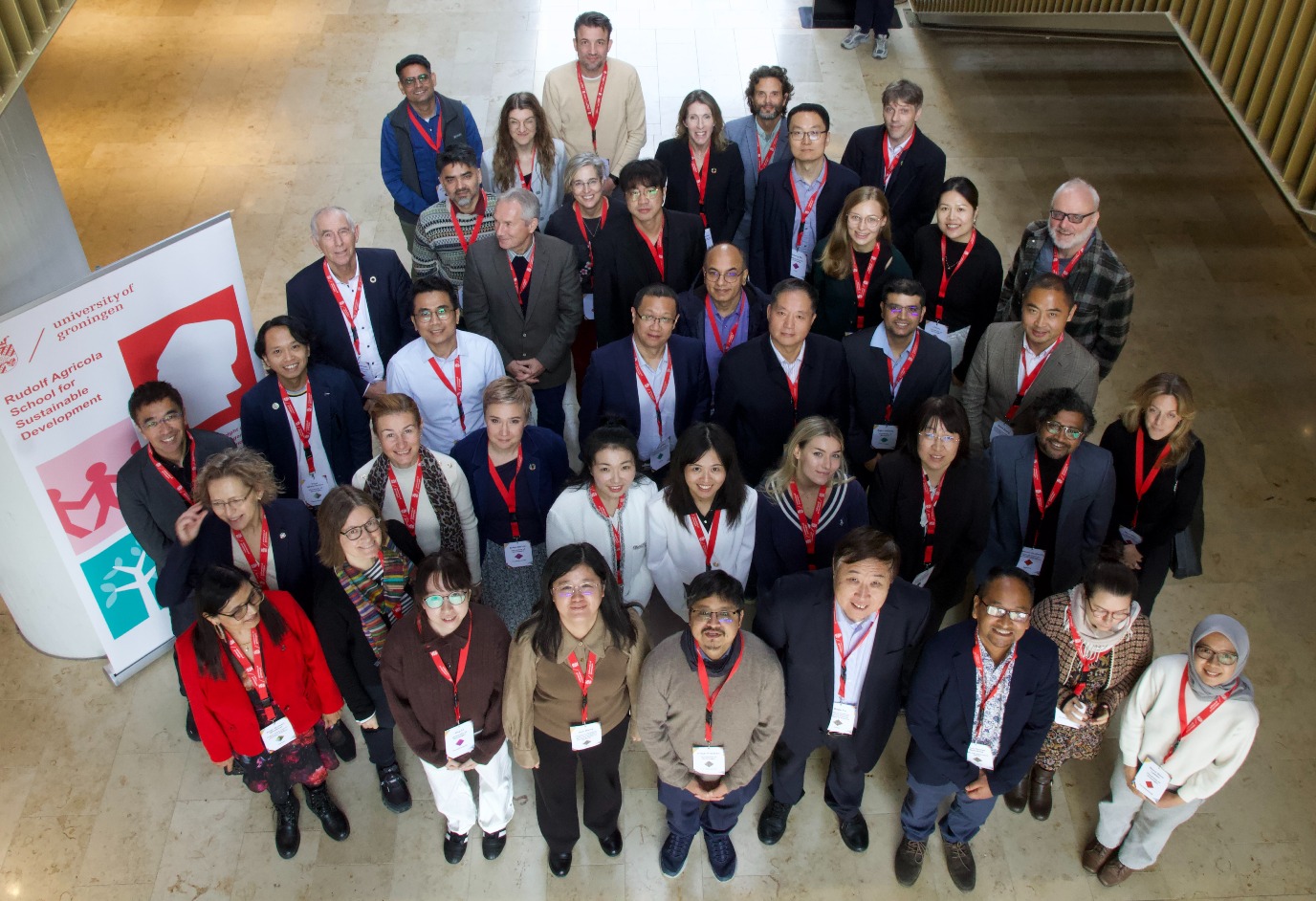Event recap: The future of SDGs in a rapidly changing world
During the three-day event “Speeding up the SDGs and shaping a more ambitious post-2030 agenda” at House of Connections in Groningen, participants discussed the future of the United Nations Sustainable Development Goals (SDGs). It quickly became clear that the world of 2025 looks very different from that of 2015, the year the goals were established. How should we move forward? A recap from the plenary closing session of the event.

The SDGs are 17 global goals established by the United Nations to end poverty, protect the planet, and ensure that by 2030 all people live in peace and prosperity. Frank Biermann, Professor of Global Sustainability Governance at Utrecht University, took stock of progress in his keynote speech. With his research team, he studied the literature on the first five years after the implementation of the SDGs – have the goals made a difference?
Biermann described the situation as a ‘glass half full or half empty’. From a half-empty perspective, research results from the first five years after implementation are ‘not very optimistic’. The SDGs alone have not yet brought about transformative change, often merely following existing initiatives. At the same time, the professor emphasized that there are still five years left until 2030.
He therefore proposed several improvements, such as introducing differentiation between rich and poor countries – since richer countries can more easily achieve the current goals. Biermann also pointed to the need for more dynamic goals that can keep pace with today’s rapidly changing world. Finally, he stressed the importance of a more binding approach, requiring legislation and institutionalization.
Next, national SDG coordinator Anna Pot discussed the situation in the Netherlands. According to her, aligning the goals with current (political) priorities and interests remains a challenge. This was followed by a presentation from Bojie Fu, Professor of Geography and Landscape Ecology and academician at the Chinese Academy of Sciences, who spoke about his research on the SDGs. He introduced three key concepts: classification, coordination, and collaboration. According to Fu, the goals should be better tailored to national and regional contexts and priorities, rather than being applied as a single universal model.
After the break, the future of the SDGs was discussed in a panel session – both in the run-up to the next summit (in 2027) and beyond 2030. Csaba Kőrösi, former President of the UN General Assembly and Director at the Blue Planet Foundation, offered concrete recommendations on how scientists can effectively convey their messages in the lead-up to the summit. He suggested, among other things, that establishing a consortium could help bring together and identify key issues.
Astra Bonini from the United Nations Department of Economic and Social Affairs agreed. She emphasized the importance of timing the delivery of evidence for the summit carefully. Junze Zhang, researcher at the Chinese Academy of Sciences, also highlighted the importance of scientific evidence and stressed the interconnections among the SDG targets.
Marianne Beisheim, researcher at the German Institute for International and Security Affairs, noted that the path to 2027 and beyond 2030 looks quite similar. ‘If we already have good ideas now, we shouldn’t wait until 2030 to implement them,’ she said. She also pointed out that the current SDGs are largely based on human rights, which in her view is a strong foundation for the future of the goals – even beyond 2030.
For Ranjula Bali Swain (Research Director, Center for Sustainability Research, Stockholm School of Economics, and Professor of Economics at Södertörn University), flexibility was paramount. ‘The world is changing rapidly,’ she argued. According to her, it is important to prepare multiple roadmaps to respond to today’s unpredictability. She also emphasized the need to pay closer attention to artificial intelligence (AI) and legislation. Finally, Kőrösi mentioned a significant ‘elephant in the room’. Recently, there have been clear calls for the UN to focus solely on peace and security. Nevertheless, Kőrösi expressed hope that other themes would continue to have a place within the UN as well.
Event organizer Prajal Pradhan, Assistant Professor at the University of Groningen, concluded with a clear take-home message. Referring to the rainy Groningen weather, he suggested that the word RAIN aptly summarized the three-day event: R for reinforcement of partnerships, A for act and implement now, I for integrated impact assessment, and N for the needs to save humanity and differentiated needs of people – because, as he remarked, the Earth itself will survive, but humanity might not.
More news
-
15 September 2025
Successful visit to the UG by Rector of Institut Teknologi Bandung

